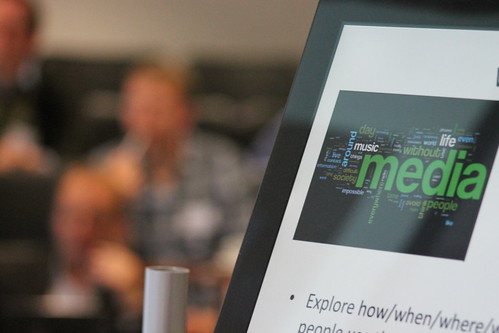
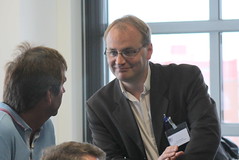
Regular blog readers will have heard me talk a lot about how, as academics, we can engage with a much wider public and the benefits of doing so.
However, questions around how to engage the public are not just for academics, but critical for our politicians, policy makers and proponents of democracy seeking to ensure our political system is representative.
At BU, researchers from the Politics and Media Research Group including Dr Richard Scullion, Prof Barry Richards, Dr Dan Jackson, Dr Shelley Thompson, Dr Darren Lillker, Dr Kris Erickson and Dr Ana Adi are exploring how politics can engage the public, excite them, interest them and involve them in a time of seemingly widespread disinterest, disengagement and distrust in our political system.
As a group, their research focuses on political communication and in particular understanding the political consumer, how to engage and mobilise members of the public using the latest technologies, and how to understand the impacts of communication.
The purpose of the event was to create a two-way dialogue between political communicators, members of the public and our researchers, with attendees including local politicians, local campaigners, MPs and members of the public recruited via social media.
The day was divided around brief, interactive presentations before lively and animated discussion took place. In particular, debate was focused around why the public show disinterest in our political system and how we might consider re-engaging the public, encouraging people to get involved in politics. Dr Ana Adi has put together a Storify of the day that capture some of this discussion, which you can find here.
The event was a great example of the importance of sharing research findings with a targeted audience, who in turn through the lively discussion have been able to contribute to the co-creation of knowledge around this key political issue of our time.
For further details about the event, please contact Dr Darren Lilleker or see his blog
Further materials that helped inform the debate can be found on Dr Ana Adi’s website, which can be found here
More information about the Politics and Media research group can be found on their microsite.
If you are interested in developing an activity to engage the public around your research, please contact Becca in the RDU on redwards@bournemouth.ac.uk / 01202 961206.


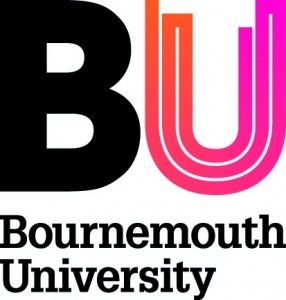
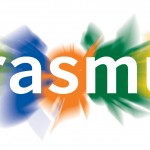
 HEFCE announced last week that in 2010-11 UK universities contributed £3.3 billion to the economy through services to business, including commercialisation of new knowledge, delivery of professional training, consultancy and services, a rise of 7% from 2009-10.
HEFCE announced last week that in 2010-11 UK universities contributed £3.3 billion to the economy through services to business, including commercialisation of new knowledge, delivery of professional training, consultancy and services, a rise of 7% from 2009-10.



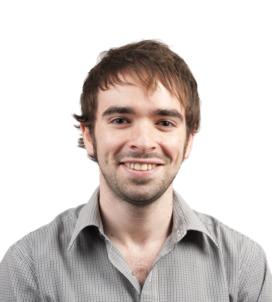
 The Large Awards Scheme makes awards of £10,000 to £100,000 for projects which are expected to have “significant regional or national impact”
The Large Awards Scheme makes awards of £10,000 to £100,000 for projects which are expected to have “significant regional or national impact”
 Congratulations to Steve Calver (School of Tourism) for securing funding from the NHS Dorset, Steve Calver and MRG (School of Tourism) for their funding from Bath Preservation Trust and the North Dorset Trailway Network, Joanna Hawkes (School of Tourism) for organising delegates for the courses Level 2 Fitness Instructor Short Course in September 2012 and Level 3 Fitness Training Short Course in October 2013, Steph Farmer (Media School) for successfully securing funding from South West Ambulance Trust Via Capita, Howard Davis and Melanie Klinkner (Business School) for their funding from Nuffield Foundation, Anthea Innes (Health and Social Care) for securing funding from Bournemouth Borough Council, Richard Gordon (School of Tourism) for securing funding from the Foreign and Commonwealth Office, John Fletcher (School of Tourism) for the funding he received from the University of Kent, Anthea Innes (Health and Social Care) for securing funding from Bournemouth Borough Council for her Community Dementia Programme, Mark Maltby (ApSci) for his funding from Central Bedfordshire Council, Mark Dover (ApSci) for his funding from Dataloft Ltd, Bronwen Russell and Jonny Monteith (Applied Sciences) for the funding they have received from Reefdene Limited, Forestry Commission and Joanna Scott, David Osselton (Applied Sciences) for the funding received from the South African Police Force.
Congratulations to Steve Calver (School of Tourism) for securing funding from the NHS Dorset, Steve Calver and MRG (School of Tourism) for their funding from Bath Preservation Trust and the North Dorset Trailway Network, Joanna Hawkes (School of Tourism) for organising delegates for the courses Level 2 Fitness Instructor Short Course in September 2012 and Level 3 Fitness Training Short Course in October 2013, Steph Farmer (Media School) for successfully securing funding from South West Ambulance Trust Via Capita, Howard Davis and Melanie Klinkner (Business School) for their funding from Nuffield Foundation, Anthea Innes (Health and Social Care) for securing funding from Bournemouth Borough Council, Richard Gordon (School of Tourism) for securing funding from the Foreign and Commonwealth Office, John Fletcher (School of Tourism) for the funding he received from the University of Kent, Anthea Innes (Health and Social Care) for securing funding from Bournemouth Borough Council for her Community Dementia Programme, Mark Maltby (ApSci) for his funding from Central Bedfordshire Council, Mark Dover (ApSci) for his funding from Dataloft Ltd, Bronwen Russell and Jonny Monteith (Applied Sciences) for the funding they have received from Reefdene Limited, Forestry Commission and Joanna Scott, David Osselton (Applied Sciences) for the funding received from the South African Police Force. Good luck to John Stewart (ApSci) for his NERC Grant application, Steve Calver (School of Tourism) in his application for funding from Perth and Kinross Council, Christopher Chapleo and Tim Ford (Business School) in their application for funding from the Institute for Small Business and Entrepreneurship (ISBE), Sara Crabtree (Health and Social Care) for her application to ISRF, Zulfiqar Khan (DEC) for his application to EPSRC, Dimitrios Buhalis, Adam Blake and Alan Fyall (School of Tourism) with their EC Tender, Mark Readman (Media School) for his application for funding from Barclays Bank, Eleanor Jack and Louise Worswick (Health and Social Care) for their application to the BUPA Foundation Seedcorn Grant, Gill Jordan (Health and Social Care) for her application to Pulse International, Clive Andrewes and Mary-Ann Robertson (Health and Social Care) for their application to Grapecroft Care Home, Bournemouth Arch (ApSci) for their application to Cerne Historical Society, Ian Swain, Caroline Ellis-Hill and Venky Dubey (DEC) for their application for funding from The Stroke Association, Colin Pritchard and Richard Williams (Health and Social Care) with their tender of the Children’s Commissioner for England, Tilak Ginige (Applied Sciences) for his funding application to HEA thematic workshop and seminar series, Dave Parham (Applied Sciences) for his funding application to Poole Harbour Commissoners, Tim Darvill, Bronwen Russell and Ehren Milner (Applied Sciences) with their funding application to English Heritage.
Good luck to John Stewart (ApSci) for his NERC Grant application, Steve Calver (School of Tourism) in his application for funding from Perth and Kinross Council, Christopher Chapleo and Tim Ford (Business School) in their application for funding from the Institute for Small Business and Entrepreneurship (ISBE), Sara Crabtree (Health and Social Care) for her application to ISRF, Zulfiqar Khan (DEC) for his application to EPSRC, Dimitrios Buhalis, Adam Blake and Alan Fyall (School of Tourism) with their EC Tender, Mark Readman (Media School) for his application for funding from Barclays Bank, Eleanor Jack and Louise Worswick (Health and Social Care) for their application to the BUPA Foundation Seedcorn Grant, Gill Jordan (Health and Social Care) for her application to Pulse International, Clive Andrewes and Mary-Ann Robertson (Health and Social Care) for their application to Grapecroft Care Home, Bournemouth Arch (ApSci) for their application to Cerne Historical Society, Ian Swain, Caroline Ellis-Hill and Venky Dubey (DEC) for their application for funding from The Stroke Association, Colin Pritchard and Richard Williams (Health and Social Care) with their tender of the Children’s Commissioner for England, Tilak Ginige (Applied Sciences) for his funding application to HEA thematic workshop and seminar series, Dave Parham (Applied Sciences) for his funding application to Poole Harbour Commissoners, Tim Darvill, Bronwen Russell and Ehren Milner (Applied Sciences) with their funding application to English Heritage.
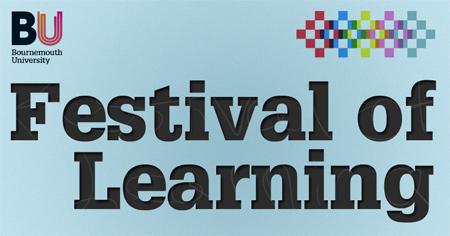 The deadline for proposals for the Festival of Learning is Tuesday 31st July. We want to be able to showcase the best of what we do here at BU, which means we are looking for proposals from as many colleagues as possible. If you have not submitted a proposal as yet, there is still time – just! The
The deadline for proposals for the Festival of Learning is Tuesday 31st July. We want to be able to showcase the best of what we do here at BU, which means we are looking for proposals from as many colleagues as possible. If you have not submitted a proposal as yet, there is still time – just! The 










 REF Code of Practice consultation is open!
REF Code of Practice consultation is open! BU Leads AI-Driven Work Package in EU Horizon SUSHEAS Project
BU Leads AI-Driven Work Package in EU Horizon SUSHEAS Project Evidence Synthesis Centre open at Kathmandu University
Evidence Synthesis Centre open at Kathmandu University Expand Your Impact: Collaboration and Networking Workshops for Researchers
Expand Your Impact: Collaboration and Networking Workshops for Researchers Visiting Prof. Sujan Marahatta presenting at BU
Visiting Prof. Sujan Marahatta presenting at BU ECR Funding Open Call: Research Culture & Community Grant – Apply now
ECR Funding Open Call: Research Culture & Community Grant – Apply now ECR Funding Open Call: Research Culture & Community Grant – Application Deadline Friday 12 December
ECR Funding Open Call: Research Culture & Community Grant – Application Deadline Friday 12 December MSCA Postdoctoral Fellowships 2025 Call
MSCA Postdoctoral Fellowships 2025 Call ERC Advanced Grant 2025 Webinar
ERC Advanced Grant 2025 Webinar Update on UKRO services
Update on UKRO services European research project exploring use of ‘virtual twins’ to better manage metabolic associated fatty liver disease
European research project exploring use of ‘virtual twins’ to better manage metabolic associated fatty liver disease